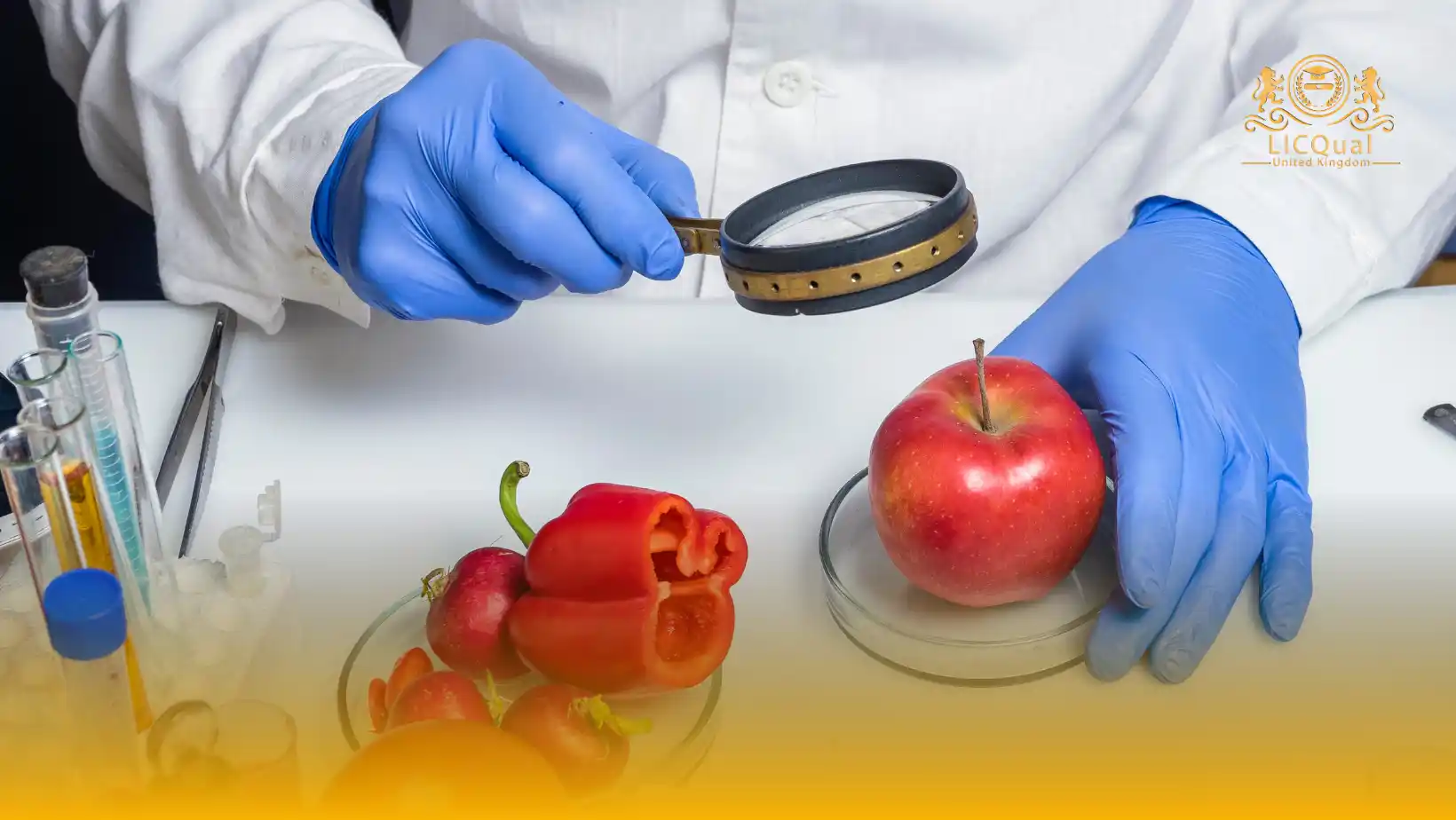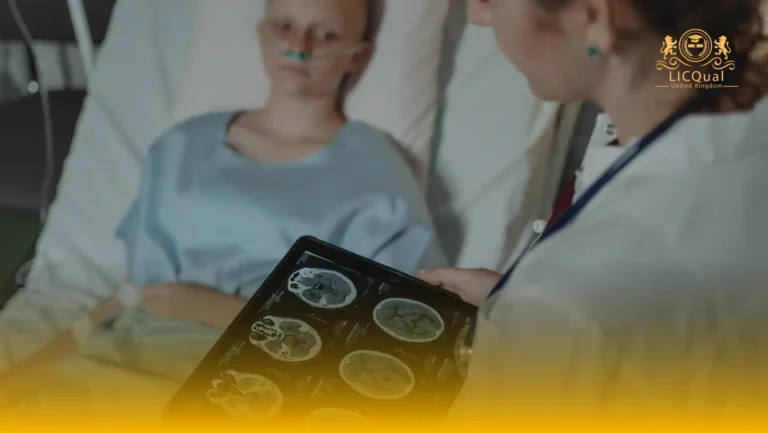The LICQual Level 3 Certificate in HACCP Food Safety is a globally recognized qualification designed for professionals working in food manufacturing, catering, retail, or any environment where food is prepared, handled, or served. This comprehensive course focuses on the practical application of the Hazard Analysis and Critical Control Points (HACCP) system, which is essential for ensuring food safety and compliance with international standards. It is ideal for team leaders, supervisors, managers, and anyone responsible for implementing or monitoring food safety systems within an organization.
As food safety regulations become increasingly stringent worldwide, businesses must adopt a structured approach to identifying, evaluating, and controlling food safety hazards. The Level 3 HACCP certification provides the knowledge and tools needed to develop, implement, and manage effective HACCP plans. Whether you are aiming to strengthen your existing food safety system or preparing for audits and inspections, this course will significantly enhance your capability and confidence.
This Level 3 HACCP Food Safety course delves into the seven principles of HACCP and explains how to apply them in real-world scenarios. applicants will explore the fundamental concepts of hazard identification, risk assessment, and the establishment of critical control points (CCPs). The curriculum also emphasizes prerequisite programs, documentation, and verification procedures that are essential for maintaining food safety integrity.
Through a mix of theoretical content and practical case studies, participants will learn to recognize biological, chemical, and physical hazards in food production and how to control them effectively. The course further develops skills in corrective action planning, monitoring procedures, and record-keeping, ensuring applicants are prepared to implement proactive food safety systems in any setting.
By the end of the course, applicants will be able to lead HACCP teams, conduct internal audits, and contribute to the continual improvement of food safety management systems. The LICQual Level 3 Certificate in HACCP Food Safety is not only a valuable asset for career development but also a vital step toward protecting public health and maintaining consumer trust. Upon successful completion, applicants will receive an internationally recognized certification that demonstrates their competency in HACCP implementation and compliance.
Course Overview
Qualification Title
LICQual Level 3 Certificate in HACCP Food Safety
Total Units
6
Total Credits
24
GLH
120
Qualification #
LICQ2200417
Qualification Specification
To enroll in the LICQual Level 3 Certificate in HACCP Food Safety, applicants must meet the following criteria:
|
Qualification# |
Unit Title |
Credits |
GLH |
|---|---|---|---|
|
LICQ2200417-1 |
Introduction to HACCP Principles and Food Safety Management |
4 |
20 |
|
LICQ2200417-2 |
Identifying Food Safety Hazards and Risk Assessment |
4 |
20 |
|
LICQ2200417-3 |
Establishing Critical Control Points (CCPs) and Limits |
4 |
20 |
|
LICQ2200417-4 |
Monitoring Procedures and Corrective Actions in HACCP |
4 |
20 |
|
LICQ2200417-5 |
Verification, Validation, and Documentation in HACCP Systems |
4 |
20 |
|
LICQ2200417-6 |
HACCP Implementation and Continuous Improvement |
4 |
20 |
By the end of this course, learners will be able to:
1. Introduction to HACCP Principles and Food Safety Management
Learning Outcomes:
- Understand the purpose, importance, and global relevance of HACCP in food safety management.
- Explain the key terms and definitions associated with HACCP and food safety regulations.
- Describe the relationship between HACCP and prerequisite programs (PRPs).
- Identify the legal and regulatory framework governing food safety in various sectors.
- Recognize the roles and responsibilities of food safety personnel within an HACCP-based system.
2. Identifying Food Safety Hazards and Risk Assessment
Learning Outcomes:
- Identify the different types of food safety hazards: biological, chemical, physical, and allergenic.
- Conduct a hazard analysis to determine potential food safety risks at various stages of food processing.
- Assess the severity and likelihood of identified hazards using a structured risk assessment approach.
- Explain the importance of proper hazard identification in developing an effective HACCP plan.
- Use flow diagrams and process mapping techniques to trace hazard points in a food operation.
3. Establishing Critical Control Points (CCPs) and Limits
Learning Outcomes:
- Define and identify Critical Control Points (CCPs) in food production processes.
- Apply decision trees or similar tools to determine appropriate CCPs.
- Set measurable and realistic critical limits for each identified CCP.
- Understand the consequences of failing to establish accurate CCPs and limits.
- Ensure CCPs are appropriately integrated into the overall HACCP plan for effective control.
4. Monitoring Procedures and Corrective Actions in HACCP
Learning Outcomes:
- Design and implement effective monitoring procedures for each CCP.
- Recognize key indicators and measurements for assessing CCP compliance.
- Develop appropriate corrective actions for deviations from critical limits.
- Document monitoring and corrective action activities in compliance with HACCP standards.
- Ensure timely response to deviations to prevent compromised food safety.
5. Verification, Validation, and Documentation in HACCP Systems
Learning Outcomes:
- Distinguish between verification and validation within the HACCP framework.
- Plan and execute verification activities to ensure HACCP system effectiveness.
- Understand the importance of internal and external audits as part of verification.
- Maintain accurate, complete, and compliant HACCP documentation and records.
- Develop strategies to review and update documentation based on operational changes.
6. HACCP Implementation and Continuous Improvement
Learning Outcomes:
- Outline the steps required for successful HACCP implementation within an organization.
- Identify common challenges and solutions during HACCP implementation.
- Evaluate HACCP system performance and identify opportunities for improvement.
- Promote a food safety culture and continuous improvement mindset within the workplace.
- Demonstrate the ability to lead or contribute to HACCP team initiatives and ongoing system enhancement.
This diploma is ideal for:
Assessment and Verification
All units within this qualification are subject to internal assessment by the approved centre and external verification by LICQual. The qualification follows a criterion-referenced assessment approach, ensuring that applicants meet all specified learning outcomes.
To achieve a ‘Pass’ in any unit, applicants must provide valid, sufficient, and authentic evidence demonstrating their attainment of all learning outcomes and compliance with the prescribed assessment criteria. The Assessor is responsible for evaluating the evidence and determining whether the applicants has successfully met the required standards.
Assessors must maintain a clear and comprehensive audit trail, documenting the basis for their assessment decisions to ensure transparency, consistency, and compliance with quality assurance requirements.







